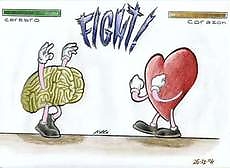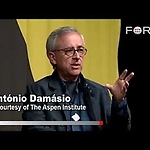"It is reason, and not passion, which must guide our deliberations, guide our debate, and guide our decision." - Barbara Jordan (1936-1996), Leader of the Civil Rights Movement, Texas House Representative
Barbara Jordan grew up in the 1950s in Texas as someone who was black, female and lesbian, everything the establishment was against at the time. I believe her quote illustrates her struggles against the prejudices people have held against her, calling for reason and a chance to be taken seriously. Moreover, as a successful lawyer, she couldn’t let her judgment be influenced by her emotions and had to defend every client equally well.
This seems ‘reasonable’: When all the facts are on the table, it’s easy to make a cost-benefit analysis and choose the best option. And when it comes to prejudice, emotions will add an unfair negative influence. It gets more difficult however, when not all factors can be expressed in numbers. You need emotions to give values to immaterial things (e.g. happiness) to make the basis of your decision-making more accurate.
"Reason and emotion counsel and supplement each other. Whoever heeds only the one, and puts aside the other, recklessly deprives himself of a portion of the aid granted us for the regulation of our conduct." - Luc de Clapiers, marquis de Vauvenargues (1715 - 1747) French Moralist and Writer
In 17th century France, writers like Blaise Pascal and Duke de La Rochefoucauld were inspired pessimists. Luc de Clapiers was one of the first writers in the 18th Century to fight this trend. He believed in the goodness of the individual, stating that action and deeds (preferably of philanthropic nature) were the way to achieve fulfilment and dignity.
The quote, originating from his book Réflexions et Maximes, seems quite modern for the time, but is actually a revival of what Greek philosophers Plato, Aristotle were describing. They tried to find reason behind emotions, stating education is a tool to override emotions. De Clapiers took it even further and stated reason and emotion should be balanced.
In decision-making on issues concerning morals, values and responsibility, emotion will play a large role, and you cannot prioritize them scientifically. Your decision should appease either all your emotional objections or be justified sufficiently to be able to give some emotions more value. By balancing (scientific) facts and emotional prioritization, you can efficiently use, following de Clapiers, all the tools to regulate your conduct. But where do we obtain the knowledge to use those tools efficiently?
“Most of what we construct as wisdom over time, is a result of cultivating knowledge of how our emotions behave”- Antonio Damasio – Professor of Neuroscience
Antonio Damasio is a neurologist focused on the human perception of reality. He states awareness is having knowledge of our existence, and of our surroundings’ existence. His quote illustrates (emotional) wisdom as something acquired when making decisions. Every time we make decisions, we assess our emotions, and when the decision is made, we can remember exactly what kind of emotions we had at the time of making the decision. Having the power to remember this, aids us in future decision-making by knowing the power of these emotions on our decisions.
It is clear we need emotions when it comes to making moral, ethical and responsible decisions. These are bound to have the involvement of emotions, and by learning from past experiences and balancing emotions with rationality, we can make decisions more efficiently. But when there’s an imbalance, in case of prejudices, or when people repeat quotes that are not backed-up by evidence, emotions can take the overhand, and have a negative influence on our decisions. Should we follow our hearts? Of course! But let rationality check up on it regularly.


